On Nov. 22, Sri Nadabrahma Sangeetha Sabha, Mysuru, brought a unique programme to the connoisseurs of Mysuru. A 100-minute Gamaka Vachana by Vidu. Samudyata Mattur and Vyakhyana by the well-known Sanskrit Scholar Dr. H.V. Nagaraja Rao brought Kalidasa’s most famous work ‘Meghaduta’ to life.
The gist of the story is Yaksha, a subject of Kubera, carries garlands made by his wife to his master Kubera for worship. One day, fascinated by the flowers, the Yaksha’s wife wears the garland before sending it with the Yaksha to Kubera. Kubera is furious to see a long string of her hair in the garland and curses the Yaksha thus: ‘For a year from now you will be banished and will suffer pangs of separation from the one for whom you committed this sin. And you will be deprived of your supernatural powers.’
‘Meghaduta’ describes how the Yaksha, after being exiled for a year from his master for neglecting his duties, convinces a passing cloud to relay a message to his wife at Alaka on Mount Kailasa in the Himalaya mountains. The Yaksha accomplishes this by describing the many beautiful sights the cloud will see on its northward course to the city of Alaka, where his wife awaits his return. The Yaksha’s loneliness does not fulfil his desires. He pleads the cloud to carry a message of love for his wife.
It is said that Kalidasa composed this work keeping in mind Sri Rama’s separation from Sita for an year when she was in Ashokavana in Lanka.
When, at the beginning of a monsoon, a cloud perches on the peak, he asks it to deliver a message for his love in the Himalayan city of Alaka. The Yaksha praises the cloud first as he has a request to make: ‘You help everyone. I see you as the messenger of Indra. I have been separated from my beloved. Please be my messenger and carry my message to my dear wife. I will guide you the route map to Alaka where my wife is waiting eagerly for my return.’ And he continues to direct the route map to Alaka. It is amazing to note how Kalidasa was a master of geography. The route that he goes onto direct is still the route today.
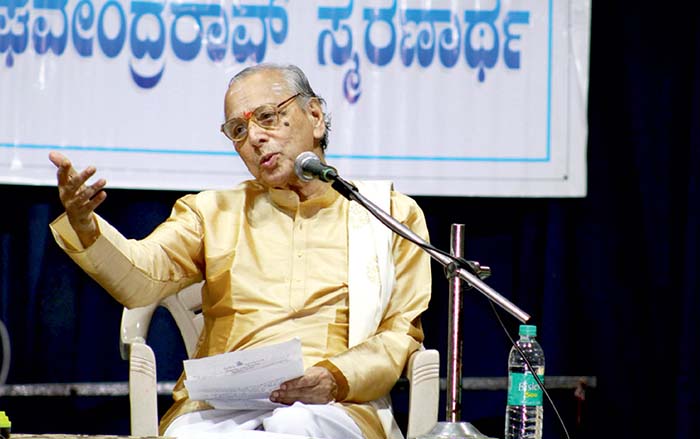
He tells the cloud it will find an ‘Aamra kuta’ — a mango farm where there are many varieties of mangoes. A little farther is ‘Vidisha,’ (which is a railway station on the way to Delhi even today) after which you get the grand ‘Ujjayini.’ Kalidasa was under the shelter of King Vikramaditya who ruled in Ujjayini. The Yaksha requests the cloud to stop here for a while.
He says: ‘You must enjoy the beauty of the place and also that of the pretty ladies, If you miss seeing their attractive eyes you will definitely be cheating your eyes. You will be enveloped by the aroma of the ‘dhooma’ used by the beautiful ladies to dry their wet hair.’ The Yaksha also pleads the cloud not to miss the puja at the Maha Kala Temple at Ujjayini, which is also believed to be a part of the heaven given by Indra. After this, the cloud will pass through Kailasa, the abode of Lord Shiva, which is also described as the ‘darpana’ (mirror) of the apsaras like Rambha and Urvashi. (It is to be noted that mirrors were not made of glass then but were made of gold, silver and bronze. As Kailasa is ‘Rajatagiri,’ a silver hill, it is described as a mirror here.
The cloud will then reach Alaka, the place of the Yaksha. Kalidasa describes the city of Alaka in many beautiful verses. Just as the lightning in the cloud shines, the beautiful ladies of Alaka shine; Like the sound of the thunder, the sound of mridanga is heard here. The cloud will find Kubera’s house, close to which the Yaksha’s house is situated. The landmark of the house is the ‘BAlamandAra’ tree grown by his wife in front of the house and a colourful ‘Torana’ on which ‘Shankha’ and ‘Padma’ are intricately carved. The Yaksha pleads the cloud to reach his house at a suitable time, keeping in mind her puja time and sleep time. The next few verses bring a detailed description of the Yakshi. She is so pretty that Brahma seems to have created her leisurely taking ample time. She is a ‘Mita bhAshi’- does not talk much. She is lost in the love of her dear husband. She is a ‘Pativrata.’ She is immersed in music but forgets what she is playing sometimes and starts all over again because she is affected by the unbearable separation from her husband.
The Yaksha pleads: ‘It is AashAda now. Just four months to go and I will join her. Please assure her about this.’ The final sentence of the final verse brings tears to the listener (reader): ‘Now roam wherever you please in your glory and may you not suffer even a single moment from the light of your life.’
‘Meghaduta’ has about 115 verses. What is unique about the work is that the poet attempts to go beyond the strophic unity of the short lyric, by stringing the stanzas into a narrative. The pair had selected 15 verses from the work and the narration by the senior Sanskrit scholar was exceptional with also excerpts from the interesting translation of this work by Kannada Poet D.R. Bendre.
Samudyata, also well-versed in Classical Music, had chosen the right ragas according to the rasas and sang well with clear diction. Erudite scholar Dr. Nagaraja Rao’s narration carried the audience to Ujjayini. His mastery over the Sanskrit texts and his sharp memory even at this age is mind-blowing.
It is a pleasure listening to the intricate details he gives about the text, not missing any important detail. His subtle sense of humour brought frequent smiles to the listeners and the audience loved it when he connected the historical/ mythological/poetic events and characters to contemporary events and characters.
—Dr. Padmavathi Narasimhan



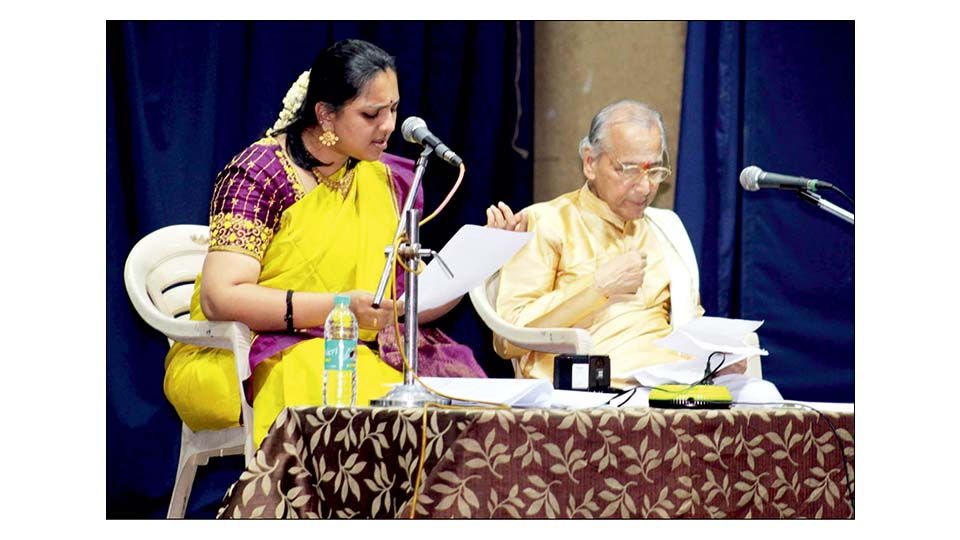
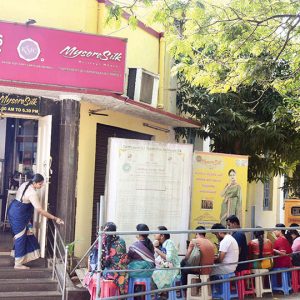
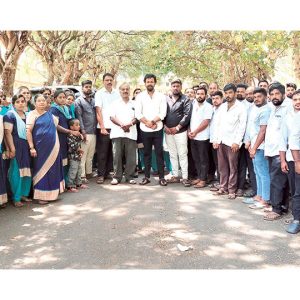

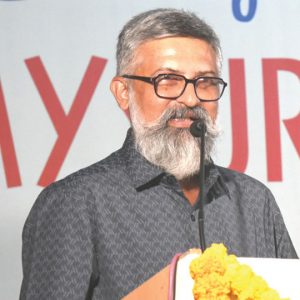
Recent Comments